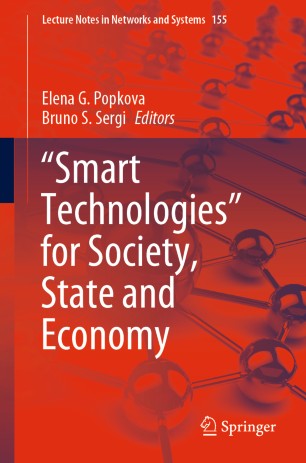

Most ebook files are in PDF format, so you can easily read them using various software such as Foxit Reader or directly on the Google Chrome browser.
Some ebook files are released by publishers in other formats such as .awz, .mobi, .epub, .fb2, etc. You may need to install specific software to read these formats on mobile/PC, such as Calibre.
Please read the tutorial at this link: https://ebookbell.com/faq
We offer FREE conversion to the popular formats you request; however, this may take some time. Therefore, right after payment, please email us, and we will try to provide the service as quickly as possible.
For some exceptional file formats or broken links (if any), please refrain from opening any disputes. Instead, email us first, and we will try to assist within a maximum of 6 hours.
EbookBell Team

4.4
12 reviewsThis proceedings book presents a comprehensive view of “smart” technologies and perspectives of their application in various areas of economic activity. The authors of the book combined the results of the cutting-edge research on the topic of “smart” technologies in the digital economy and Industry 4.0 and developed a unified scientific concept. The current experience has been considered, and the prospects for the application of “smart” technologies in society to promote social advance have been identified. “Smart” technologies in public administration and law, as well as the experience in development of e-government, have been examined. “Smart” technologies in business activity have been studied, and the transition from digital business to business 4.0 has been justified.
The book contains the collection of the best works following the results of the 13th International Research-to-Practice Conference “Smart Technologies” for society, state and economy which was run by the Institute of Scientific Communications (ISC) and was held on July 2–3, 2020. The target audience of this book includes researchers investigating fundamental and applied problems of development of “smart” technologies, as well as concerned parties outside the academic community, in particular, representatives of the digital society, high-tech business entities and officials regulating the digital economy and Industry 4.0.